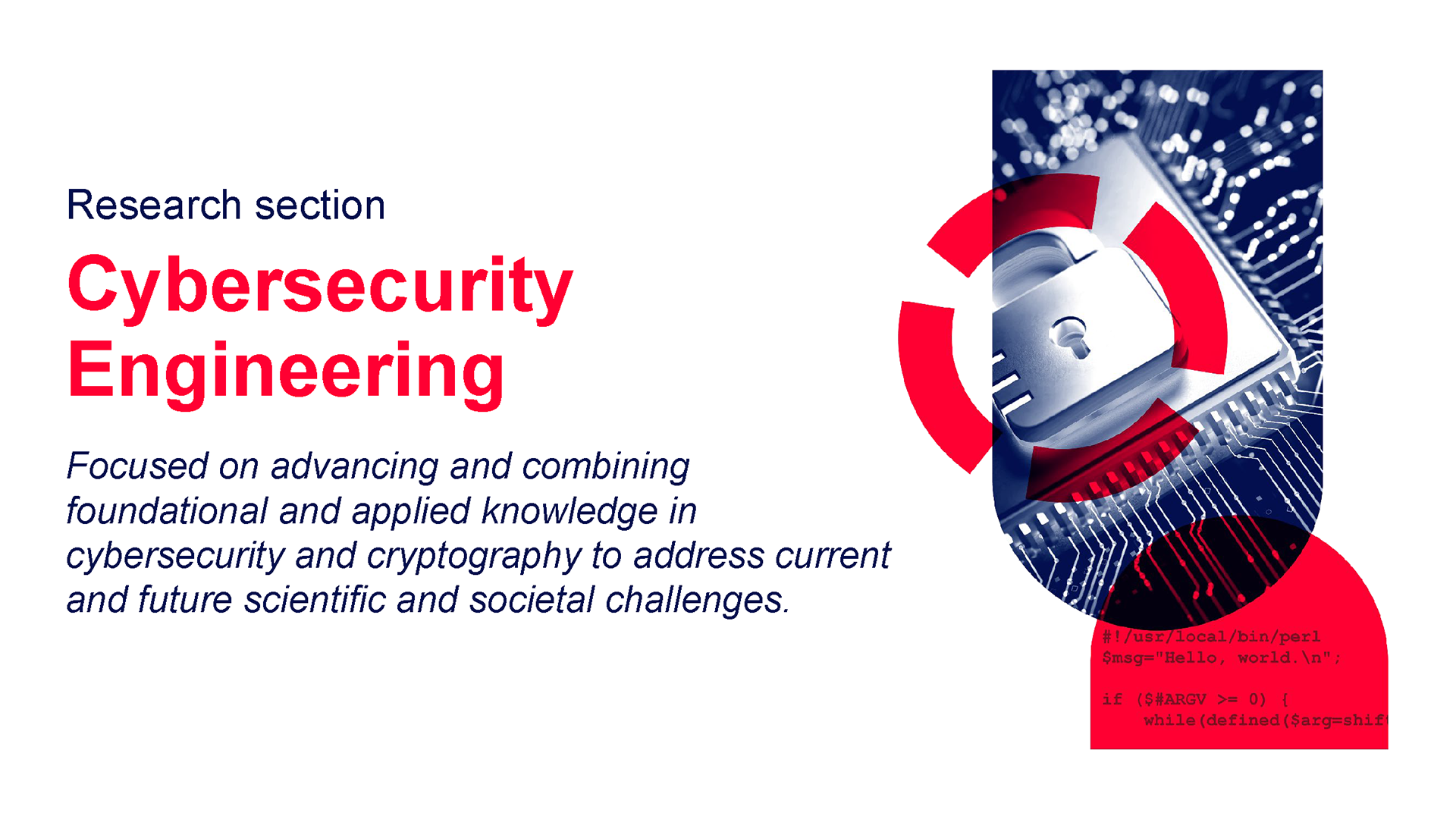Section for Cybersecurity Engineering
Cybersecurity engineering focuses on the methods, processes and tools for the design, development and analysis of secure computing systems that are accessible through a network, typically the Internet, often known as cyberspace.

The section aims at advancing and combining foundational and applied knowledge in cybersecurity and cryptography to address current and future scientific and societal challenges. We pursue this goal by means of cutting-edge research and research-based teaching.
We conduct both foundational and applied research in a broad range of topics central to the design, development, and testing of next-generation secure computing systems. We educate new generations of engineers, scientists, and IT professionals in everything from the foundations, principles and state-of-the-art methods and technologies needed to address the secure development, deployment, and operation of networked computing systems.
